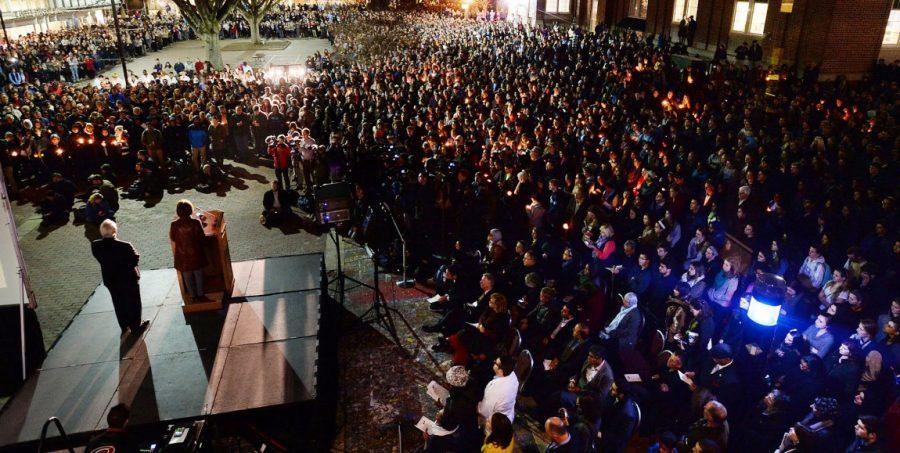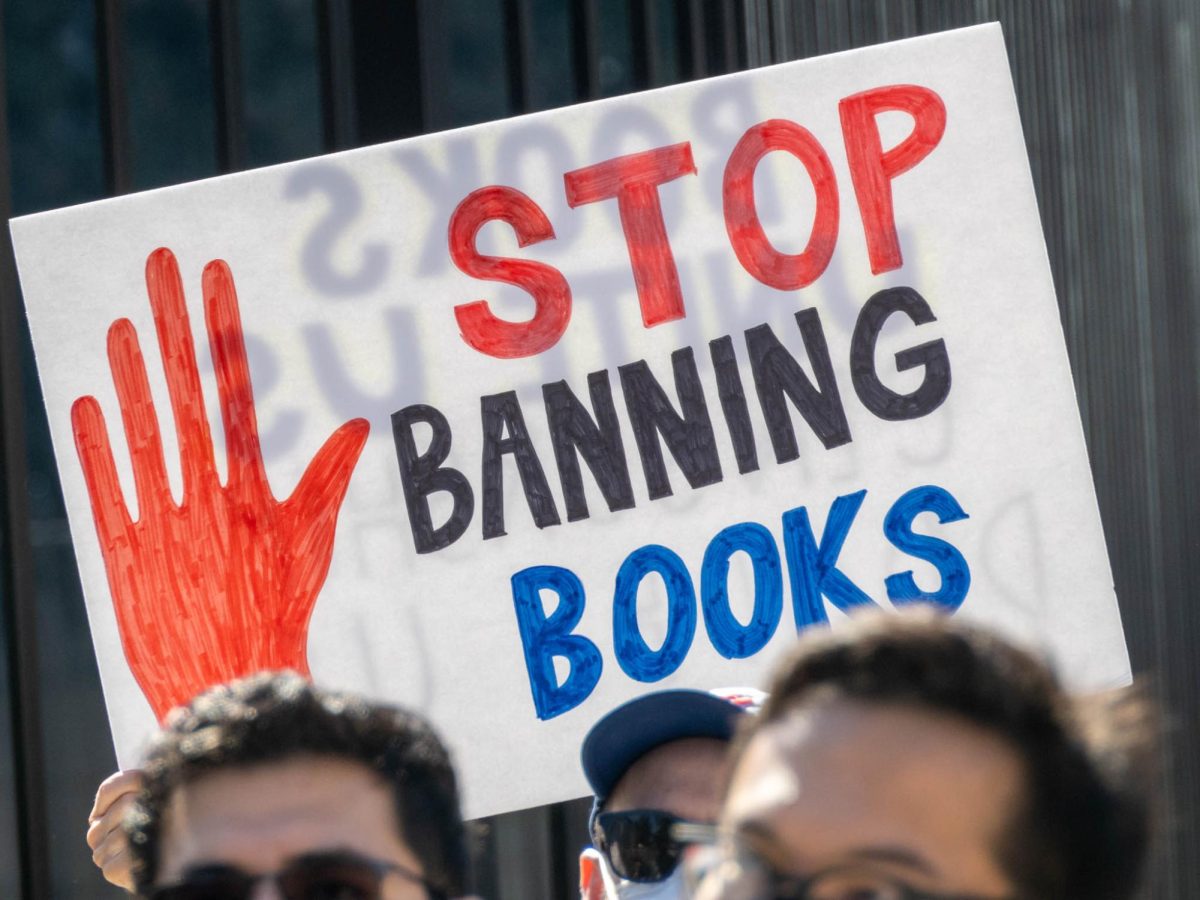
By AISHEE DAS & TRISTAN MALHOTRA
Staff Writers
On February 10, 2015, newlyweds Deah Barakat, Yusor Abu-Salha and Yusor’s sister, Razan Abu-Salha were shot inside their home in Chapel Hill, North Carolina by their white neighbor, Craig Stephen Hicks. According to local authorities, the shooting of these three Muslim University of North Carolina students was a conflict over a parking space, but after outcry from Muslim communities around America, the federal government and FBI are beginning to investigate whether this shooting was a hate crime.
Al JazeeraThe trending hashtag #MuslimLivesMatter declared the murder of these innocent students a gruesome hate crime based on the students’ religion and documented the outrage over the lack of coverage by large news stations. Unfortunately, it was not until Twitter users protested that the incident broke onto the national stage. According to
CNN, stories began appearing on channels like
Fox News,
MSNBCand
over 12 hours after the murder took place and not as breaking news but as just another story documented on a Wednesday morning.
Despite the uproar, popular media was hesitant to label this incident a hate crime. A hate crime, as defined by Congress, is a “criminal offense … motivated in whole or in part by an offender’s bias against a race, religion, disability, ethnic origin or sexual orientation.”
The Raleigh News-ObserverWhile it is difficult to prove a racial bias within the motivation behind any murder, it is also difficult to explain how a man would be so willing to shoot an entire family over a parking space. In an interview with
, the late Abu-Salhas’ father, Dr. Mohammad Abu-Salha, said, “It was execution style, a bullet in every head. This was not a dispute over a parking space; this was a hate crime. This man had picked on my daughter and her husband a couple of times before… with his gun in his belt.”
The Raleigh News-ObserverHe also said that his daughter had expressed concerns about Hicks, he told
, and recalled Yusor saying that “Hicks hates us for what we are and how we look.” Hicks has made several posts on his Facebook page promoting atheism and bashing other religions (not solely Islam) before. One of his posts said, “People say nothing can solve the Middle East problem. Not meditation, not arms, not financial aid. I say there is something else. Atheism,” indirectly declaring Islam as the root of the “Middle East problem.”
ABCWhile there is no way to conclude that Hicks had murdered the three Muslim students on account of religious bias with the evidence of this post, it is obvious that Hicks was bluntly biased, adding to the case against the shooting merely being a parking space conflict. However, even while the possibility of a hate crime is likely, local authorities have already determined this murder to be caused by a conflict over a parking space.
News Consultant Brad Garett said, “It’ll be much easier to pursue [and prove] a murder case,” rather than a hate crime.
Inside EditionNews stations have been reporting the Chapel Hill incident as an “isolated incident” over a parking space, even downplaying the solemnity of this situation.
used a brief summary of the Chapel Hill shooting as a segue into how to find better parking at a mall, saying that “finding a parking space is one of those things that can push some people over the edge, but there is always a way to find a spot at the mall.”
The Daily Callereven criticized the President for acknowledging the possibility of anti-Muslim bias in the murder because he spoke on this issue in more depth than the deaths of white individuals at the hands of Muslims in Denmark and Libya. Instead of focusing on the possibility of religious bias as a basis for the killings, news stations are comfortable embracing the parking space excuse and devaluing the situation.
Aside from it being easier to say that Hicks shot the three students because of a parking dispute, it is also more comforting to the masses. The media is treating this story as just another incident of a man gone wild. Even Hick’s wife, Katie Hicks, has asked for investigations into her husband’s mental state explain why he would do such a thing.
Investigators are quick to look into mental illnesses or any previous conflict to blame the crime rather than allude to the larger system of racial and religious bias that is in play, yet this privilege is only given to white men, blatantly seen with the recent rampage of school shootings in the U.S. where the majority of perpetrators have been white men. In cases like the Sandy Hook Elementary School shooting, the investigators were quick to find a mental illness for gunman, Adam Lanza, which might have triggered the horrific shootings. Our society is comfortable knowing that a crime is the result of a personal conflict or a mental illness because then, the crime is not representative of the larger population.
Tulsa WorldIf we were to attribute this murder to a grander system of racism or religious intolerance, our society would have to recognize its flaws as a whole rather than simply blaming the few (white) outsiders. The opposite can be said for incidents that involve those who practice Islam, in which Islam is often generalized to be the problem. According to
, Oklahoma State Representative John Bennett (Rep.) called Islam “a cancer in our nation that needs to be cut out,” comparing it to a horrific disease that infects millions in the modern world. These generalizations only feed into the Islamophobia already present in America. And this statement was not made by a lone, crazy radical. It was made by a man elected to state legislature by the people in the state of Oklahoma. Bennett is a respected man in Oklahoma, and his statement shows the widespread reach of religious intolerance.
StoryCorpsIslamophobia has infected America and caused an inherent impulse to associate a Muslim to a radical ISIS or Al-Qaeda killer because terrorist organizations have perverted the view of Islam to the point where even the kindest and giving men and women can be grouped and defined by extremism. Yusor Mohammad said in a previous interview with her elementary school teacher for the
, “The beautiful thing here is that it doesn’t matter where you come from. There’s so many different people from so many different places of different backgrounds and religions. But here, we’re all one, one culture.”














